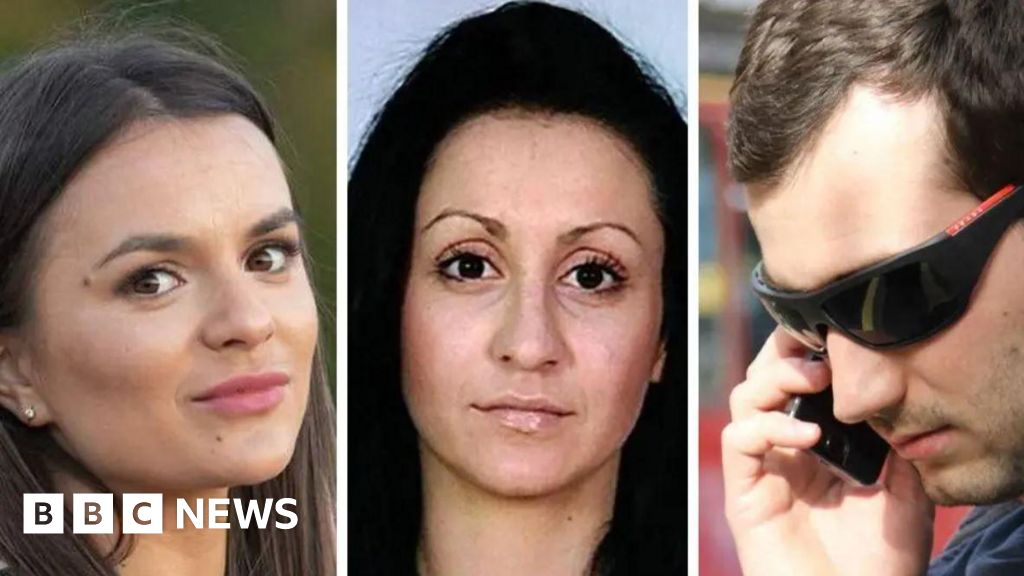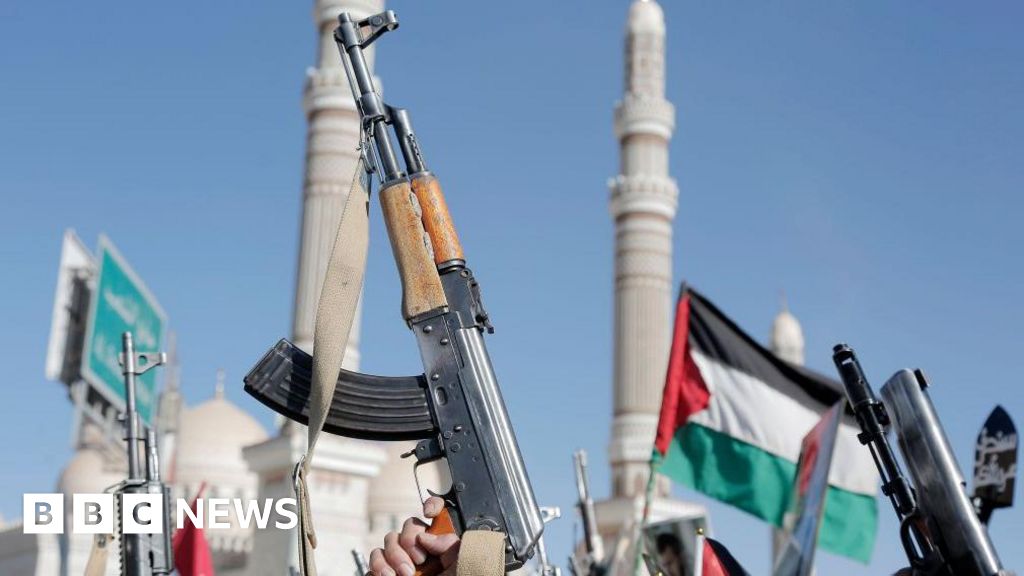ARTICLE AD BOX
Watch: Ex-wife of Dubai royal appeals for help to ensure her and her children's safety
By Sebastian Usher
BBC News
Lawyers for the former wife of a member of Dubai's ruling family have lodged a request to the UN Human Rights Council.
They want the council to intervene with authorities in the UAE to ensure Zeynab Javadli and her children's safety.
The request claims that Ms Javadli has faced abuse, harassment and intimidation by authorities during a bitter custody battle with Sheikh Saeed bin Maktoum bin Rashid Al Maktoum.
His lawyers have argued Ms Javadli is an unfit mother, which she has denied.
It's the latest case in Dubai to reveal rifts within the ruling family
"Please help me," Ms Javadli says in a video exclusively obtained by the BBC. "My children and I are terrified and frightened for our lives and safety."
"We are effectively homeless and trapped in a hotel in Dubai, with my children unable to leave without fear that I might be arrested and have my children taken from me."
The 31-year-old former international gymnast from Azerbaijan is speaking from Dubai, where she has remained since her divorce from Sheikh Saeed at the end of 2019. She has stayed there with her three young daughters out of concern that if she left the country, she might never see them again.
For nearly three years, she's been locked in a custody battle with her ex-husband.
The couple were married in 2015. They lived in Dubai, where Sheikh Saeed is part of the ruling family - he is the nephew of Dubai's ruler Sheikh Mohammed bin Rashid Al Maktoum.
In their appeal for intervention from the UN Human Rights Council, her UK-based lawyers claim that both her freedom of movement and of expression have been restricted, while tactics of intimidation have been used against her.
The appeal alleges that Ms Javadli, her children and her parents were attacked and assaulted when Dubai police broke into their house two years ago. Ms Javadli livestreamed the event, attracting worldwide attention. Her parents have since returned to Azerbaijan.
Over the past three years, she says that police raids on her home, court summonses and arrest warrants have become a routine part of her life.
The 50-page document also alleges that her case has not been handled impartially - claiming that custody was granted to Sheikh Saeed without due process.
It claims that Ms Javadli has been faced with a "blatantly unfair, discriminatory and biased judicial process". It says that the only court decision in her favour was changed "without proper justification" within days of being issued.
Lawyers acting for Sheikh Saeed have claimed in court in Dubai that Ms Javadli is an unfit mother, who has failed to send her daughters to school, is living in a place unsuitable for the children, and has put the health of the youngest girl at risk.
Ms Javadli has rejected the accusations and provided evidence to the contrary in court.
Currently, she is engaged in a stand-off with the Dubai authorities - keeping her children at home and not sending them to school over her concern that they might be taken from her and never return.
The school has asked for her to take part in a meeting to discuss the situation.
She and her lawyers believe the order granting custody of the children to Sheikh Saeed could be enforced at any moment, although she has lodged another appeal against the judgement.
Another source with experience of the legal system in Dubai says that what is described by Zeynab Javadli fits the pattern of previous cases involving former wives or members of the ruling family.
Princess Haya - the ex-wife of Sheikh Mohammed bin Rashid Al Maktoum - fled the UAE in 2019, saying that she feared for her life. Earlier this year, the princess won a custody battle that played out in the highest court in the UK, which gave her sole custody of their two children.
That followed the extraordinary saga of Sheikh Mohammed's daughter, Princess Latifa, who mounted a daring bid for freedom in 2018 from what at the time she claimed was her family's coercive control.
The boat on which she was making her escape was intercepted in the Indian Ocean and she was forcibly returned to Dubai. She then claimed that she was being held captive in secret videos. She has since re-emerged to a limited extent in public, saying she that she is well and living as she wishes.
It's in this context that Zeynab Javadli is making her case for UN intervention.
"We are hostages in our home," she says in the video obtained by the BBC.
One of the lawyers acting for her, Rodney Dixon says: "It's not too late... There is no need for this situation to deteriorate any further - it can be ended now in the best interest of all parties."
The BBC has contacted the UAE authorities for comment on the case, but has not yet received a response.

 2 years ago
23
2 years ago
23








 English (US) ·
English (US) ·